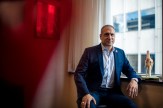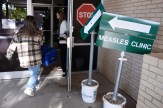How a professor found her calling in Ghana by bringing hundreds of Northeastern students to West Africa
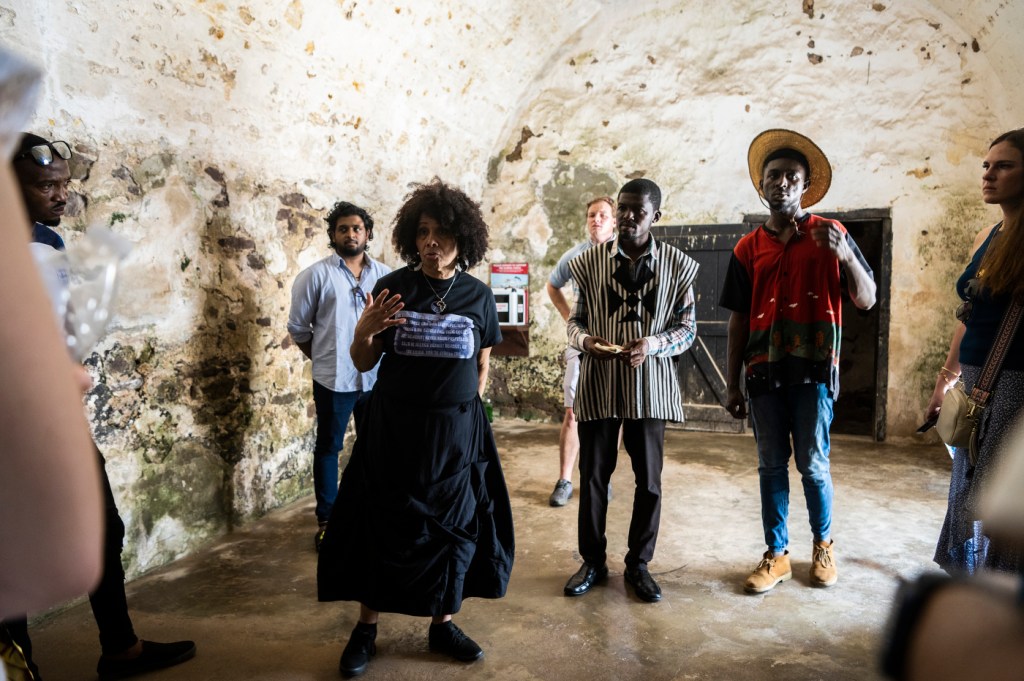
ACCRA, Ghana—Vanessa Johnson grew up in Cleveland, Ohio, but when she first stepped on the tarmac of the airport in Accra in 2006 it felt like Ghana had called her—like in the W.E.B. Du Bois poem.
“I just got this feeling,” she says. “All of two weeks [of the trip] every minute was something that felt special to me. I felt connected.”
At that time Johnson was the director of the College Student Development and Counseling program at Northeastern University. The American College Personnel Association was organizing a trip to Ghana to see how student affairs and administrative hiring is handled in that country, and Johnson decided to go. The following year she joined a Northeastern delegation that went to Ghana to sign a memorandum of understanding with the University of Cape Coast. After the visit she was asked to design a Dialogue of Civilizations in Ghana.
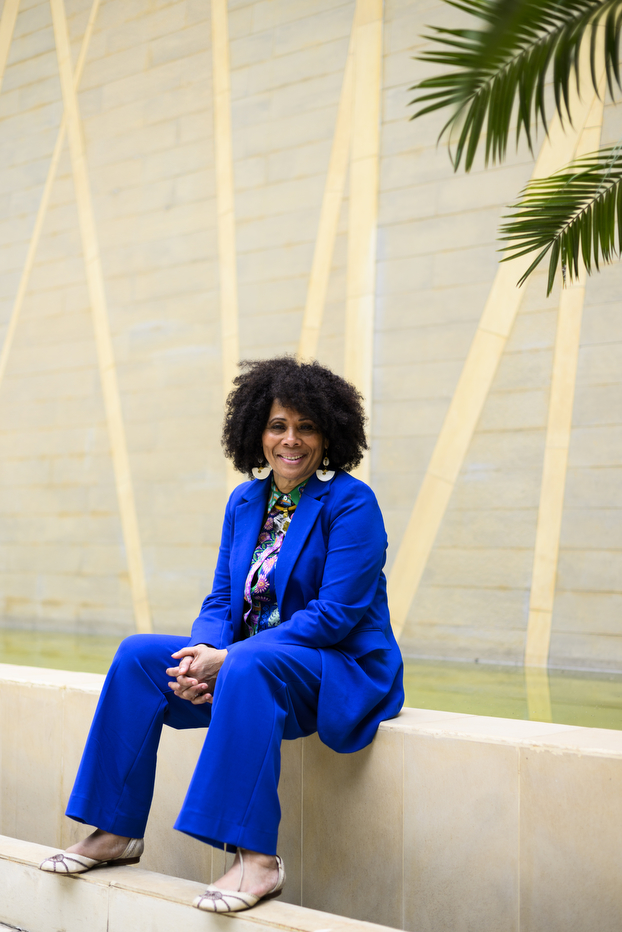
“I have been coming back and forth ever since because of my love for the country,” says Johnson, who is currently an associate professor in the department of applied psychology in the Bouvé College of Health Sciences.
After leading more than a dozen dialogue programs in Ghana, Johnson recently helped Northeastern organize its 2023 Global Leadership Summit in Accra.
The intergenerational audience included alumni, students, parents, faculty and friends from around the world for a program that spanned several days and topics ranging from business to sustainability to culture to entrepreneurship.
The Dialogues of Civilizations is one of the most unique experiences that Northeastern offers to its students, Johnson says. They are short-term faculty-led study programs focused on critical issues facing society and offered during the summer in different locations around the world.
“I thrive and grow every time,” she says. “I become a better person from each experience.”
Groups of 10 to 30 students spend four to six weeks exploring a new culture, going on excursions and participating in various activities while taking a course that usually corresponds to major or minor fields of study.
“A whole dialogue is really just this incredible experience to show students a part of the world they may not have experienced,” Johnson says. “Or if they have experienced it, to show them a different way of experiencing it from an academic perspective.”
She is currently the faculty leader of two dialogues in Ghana—one called “Education and Learning in Ghana” and the second named ”Health Systems, Services And Education In Ghana.”
Johnson says she gets to use all her “superpowers” as an educator during these trips, including curriculum design, program design, teaching and creativity.
“Sometimes I lay up at night, not counting sheep, not dreaming of anything other than ‘What is the best way I can make this point for my students?’” she says.
Her priorities for the dialogue are safety, knowledge acquisition, cultural immersion, professional preparation and interpersonal growth.
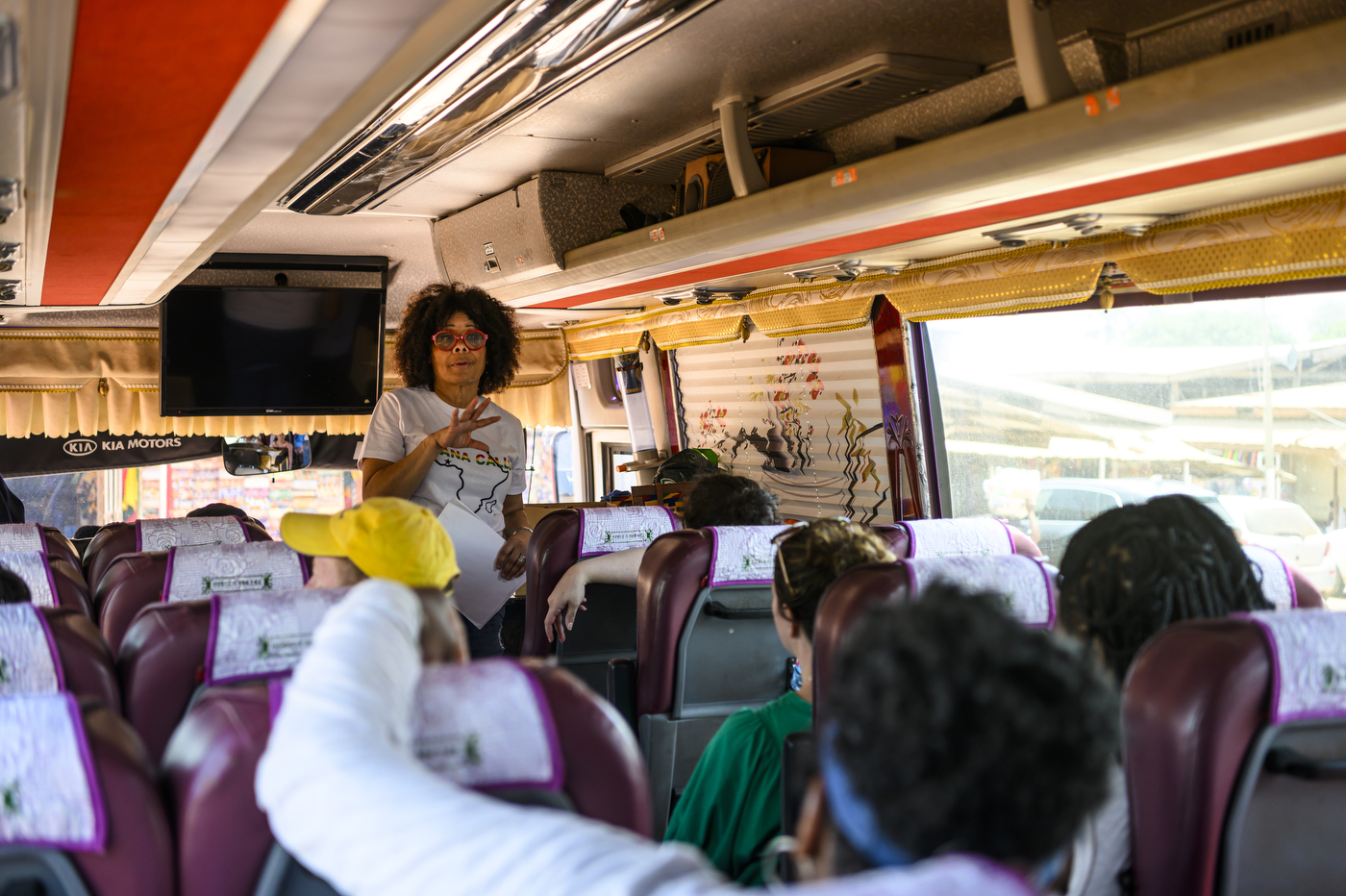
Before embarking on the trip, students are required to read “Homegoing,” a historical fiction novel by Ghanaian-American author Yaa Gyasi. They also write a pre-departure statement on why they want to go on this dialogue, which is usually something basic, Johnson says, like wanting to see the country or its health care or education systems.
After the trip, students write a post-participation statement. Many of them talk about how they changed, what they gained and what kind of work or research they hope to do after college. Another prevalent theme is how their attitude toward traditional Ghanaian medicine changed and how they appreciate it after learning more about it.
In Ghana, Northeastern students attend lectures by the faculty of the University of Ghana, Kwame Nkrumah University, University of Cape Coast, University of Education at Winneba and Garden City University in Kumasi.
Students also work on a group project in small groups on a theory in education or, in the case of the health care dialogue, a theory and a model based on certain health care data of a certain population.
During the dialogue, students participate in peer interviews with young Ghanaian students from nursing or medical schools and share experiences.
Cultural and art immersion includes tie dying fabric and making a shirt, skirt or a pillowcase out of it, basket weaving, cooking classes and mask painting.
Students also have to take turns writing blog-posts each day, which allow parents to share the experience.
“Everything culminates in a portfolio that they have to give me,” Johnson says.
She has a trusted in-country coordinator, Edward Mudashiru Tetteh, director of Brisk Protocol Services Ltd., who has provided logistical support for almost a dozen Ghana dialogues.
Part of the experiential learning on this dialogue is service learning.
“We don’t just come to Ghana to get all our good feelings about having come and then not leave anything behind,” Johnson says.
Before going to Ghana, she collects in-kind donations and encourages students to contribute or help bring these donations to Africa in a second bag on the plane.
“If you come to my office around July 1, you will see about 30 suitcases outside of it, ready to be brought to Ghana,” Johnson says.
Participants of the dialogue go to orphanages, schools for the blind and deaf, schools for children with special needs, and a leprosarium.
The donations to such places include clothing, school supplies, board games and puzzles, books, Braillers, soccer equipment, used laptops and desktops, personal hygiene kits, dental kits and so on.
“Starting when I return back from Ghana, I will be going to every Dollar Tree store and every Walmart buying these dollar packs of toothbrushes,” Johnson says. “We pack them into suitcases and we bring them back and we teach dental hygiene.”
Students not only distribute the donations but engage with children, playing and reading to them. They teach hygiene classes in all-female classrooms and schools.
One time, Johnson and dialogue students visited an orphanage where children slept on the bare floor instead of the bunk beds because they didn’t have mattresses. So students put together their money and asked parents for donations and bought the mattresses.
Johnson, her students and donors helped a school put together a computer lab and another one—to purchase more land.
Ghana dialogues have measurable outcomes—close to 300 students have participated in these programs led by Johnson.
Some students went on to become Fulbright scholars, others went back to teach in Africa. One student wrote a book inspired by their experience, and Johnson has written quite a few recommendation letters for extended study abroad experiences and professional practices former students chose to pursue after going to Ghana.
“This past year we’ve had five students apply for med school,” she says.
Next, Johnson would like to develop a lecture series on mental health in Ghana and global dimensions of mental health. She is also looking for ways to increase the number of Black Northeastern students, especially males, in her Ghana dialogue programs.
The data nationwide show that Black students are less likely to participate in a study abroad due to financial constraints, she says.
Over the years, she learned from Ghanaians to not sweat everything, live large in small amounts and put her community first.
“The Dialogues of Civilizations allowed me to answer that call [from Ghana],” Johnson says.
Alena Kuzub is a Northeastern Global News reporter. Email her at a.kuzub@northeastern.edu. Follow her on Twitter @AlenaKuzub.




